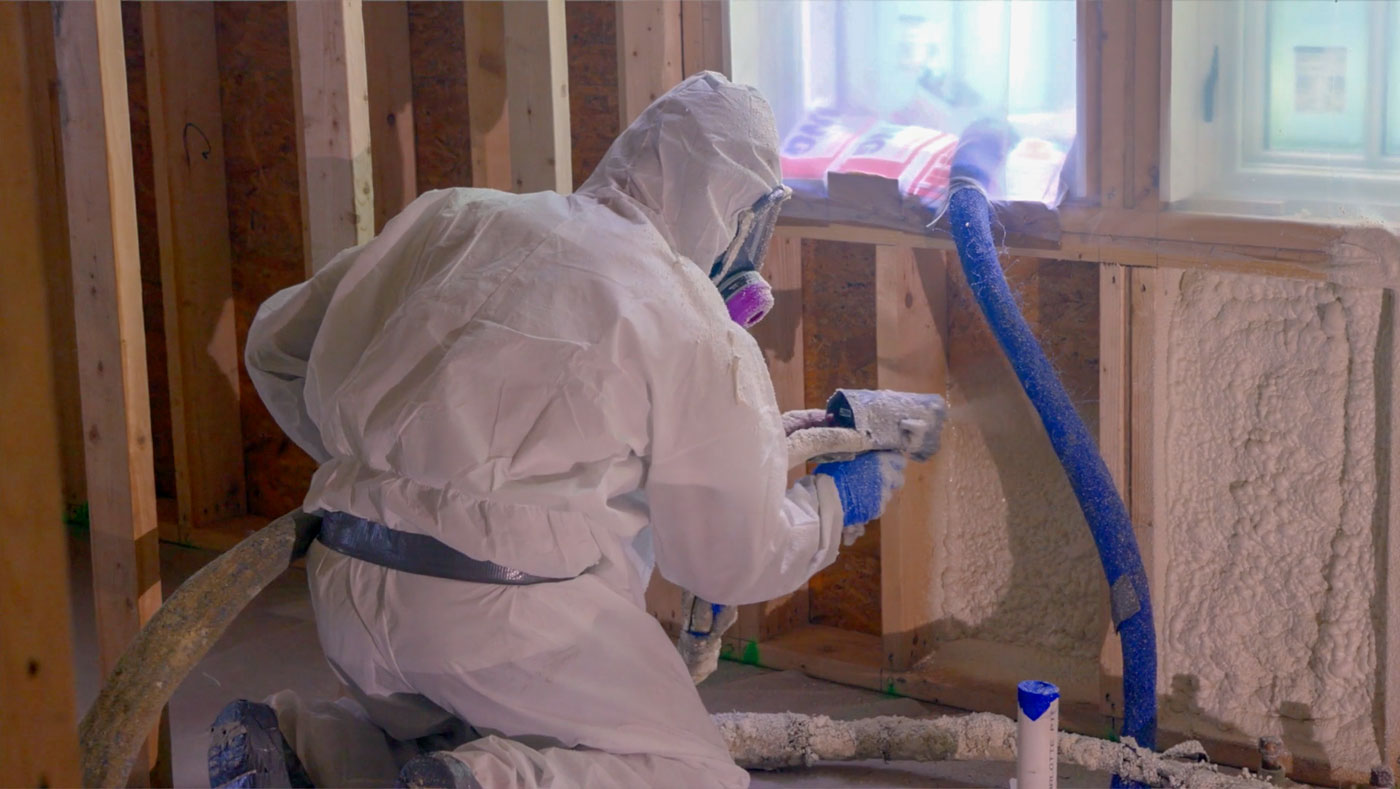July 30, 2019 | Kendra Keelan

Have you ever asked, What’s the difference between an LED, LCD or Plasma TV? The difference has to do with the light source behind the screen. Well, according to the pros at Anderson Insulation, an equivalent question in the insulation world is: What is the difference between open cell and closed cell spray foam? Sales Manager Patrick Ford of Anderson Insulation answered that million-dollar question when interviewed on the site of publisher Melanie Perillo’s house renovation. Melanie’s home is completely laden with closed cell insulation. Before we get into the differences, let's debunk this myth first: Is spray foam the same as icynene? The answer is no. Icynene has been around for so long, it has become the catchall phrase for all insulation, and is akin to calling tissue, “Kleenex.”
Spray foam is two chemicals that come together: there is an A side and a B side, when you switch those sides around, you are basically changing what the product is. In most parts of a house, you can use closed cell and open cell interchangeably.
Open cell: You spray open and closed cell on the exact same way, but when open cell goes on, it will balloon out, it expands so fast. You need less material to fill cavities, and sawzals are needed to shave down the size of it because it can’t be controlled like closed cell.
Closed cell: Due to the properties in it, closed cell is better anywhere you will run into possible moisture issues, like basement walls, crawl spaces, indoor pools, some bathrooms, etc. Certain areas you need to use closed cell because it is more hydrophobic and a better vapor retardant.
Which one is better? Like the LED, LCD or Plasma TV, it really comes down to personal preference. Many houses have a mixture of everything like closed cell, open cell, fiberglass and blown-in cellulose. There are only a certain number of situations where you are pigeonholed to use a certain type of spray foam. The most important difference that you, as a homeowner, need to be aware of is the control of moisture. And, of course, the technicians at Anderson Insulation can help you navigate and assess what type of insulation would work best for your project and climate.
Visit andersoninsul.com to learn more.


Add new comment